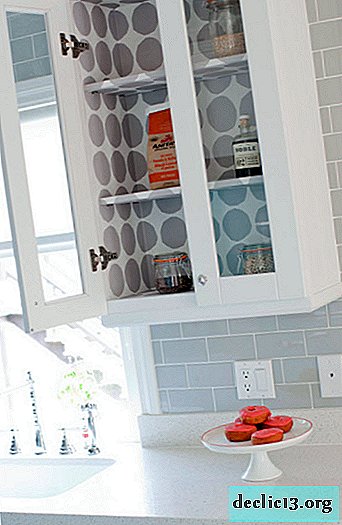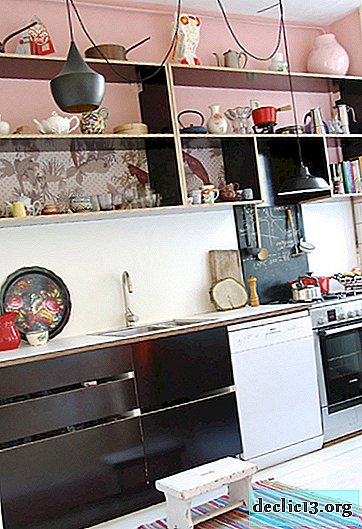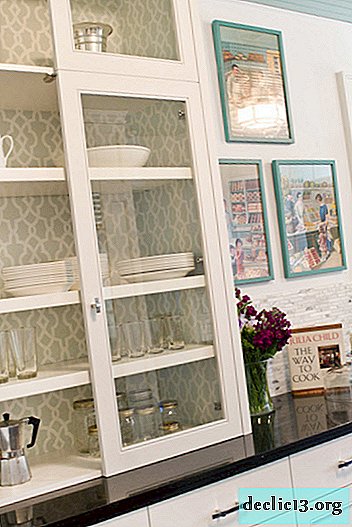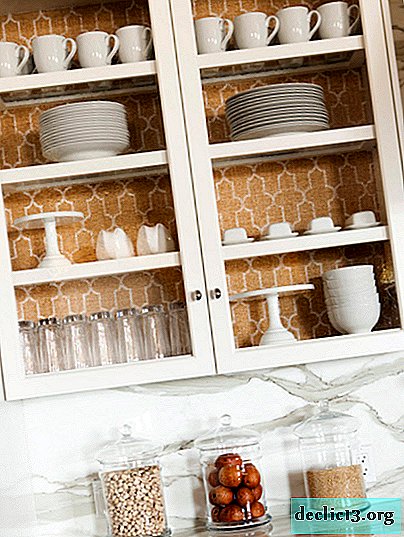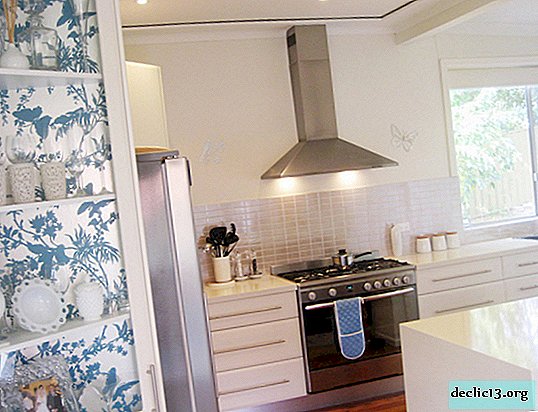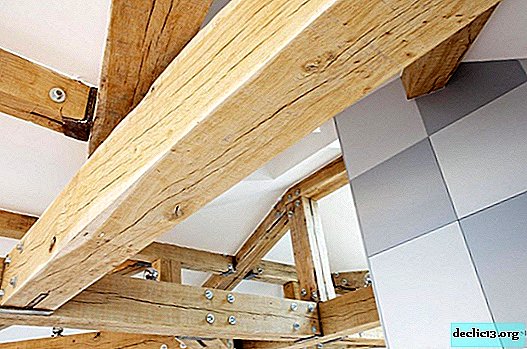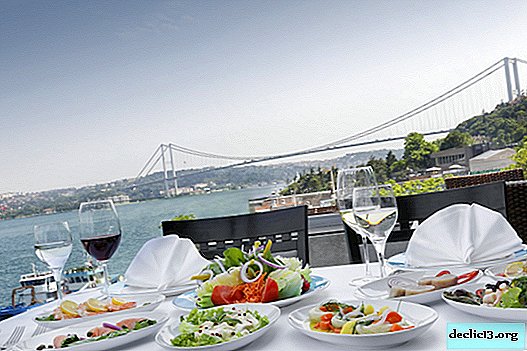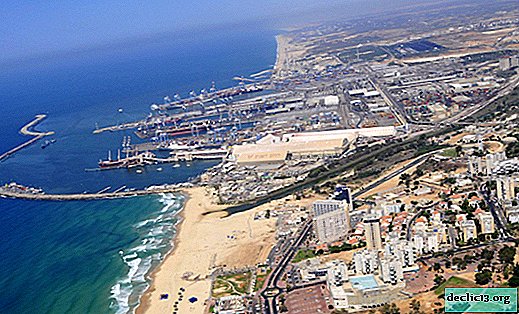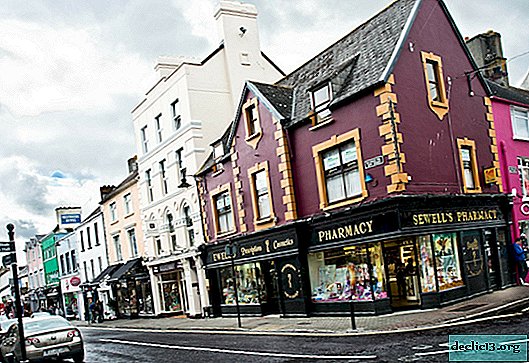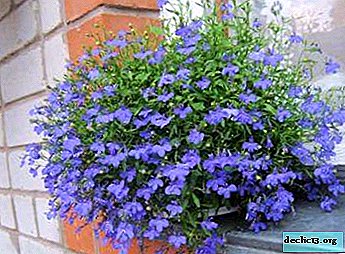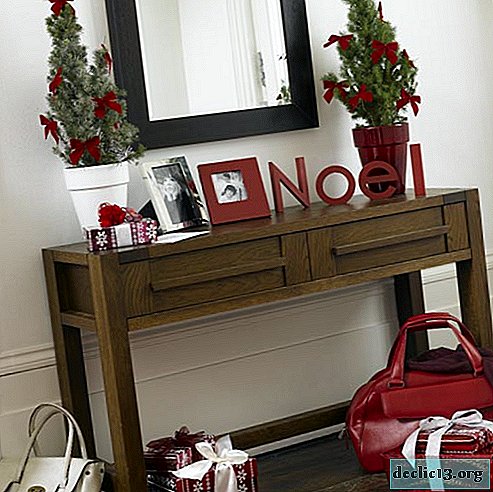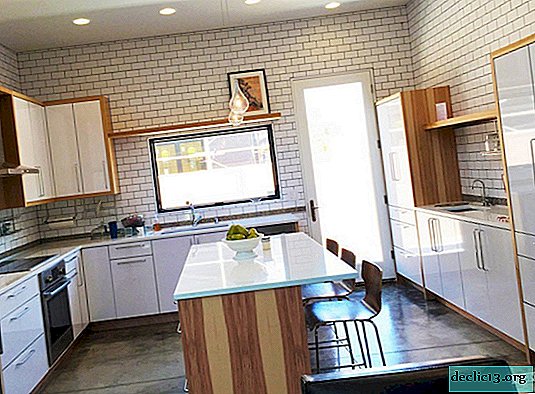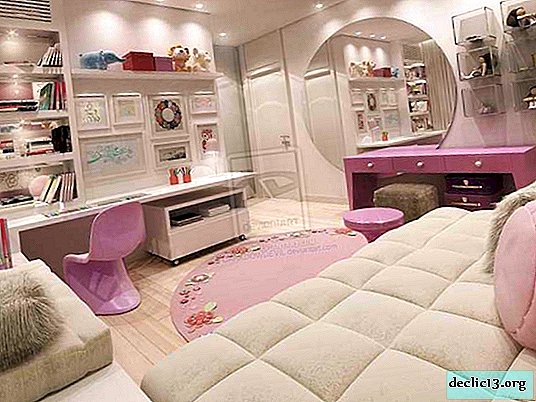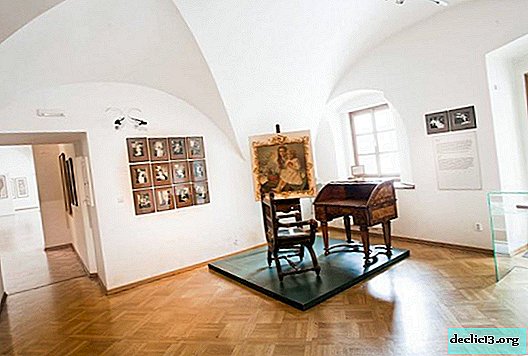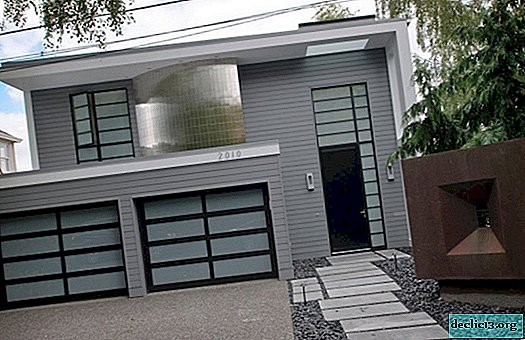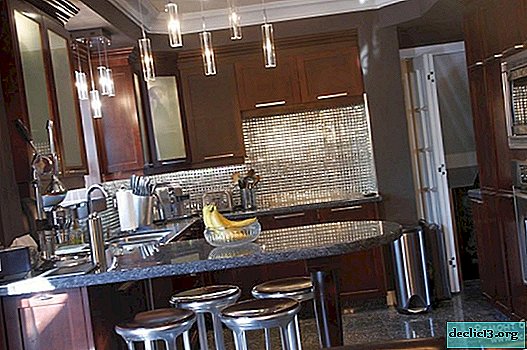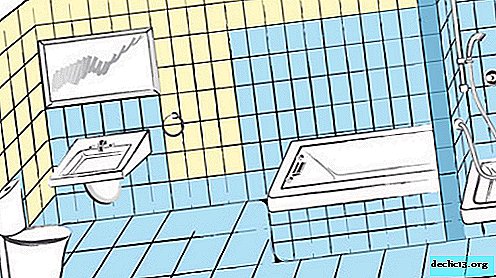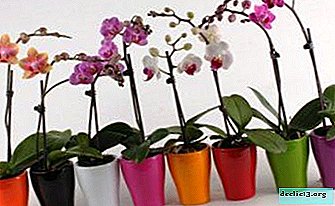Wallpaper for the kitchen - 2018 design
Making a kitchen for any homeowner is as responsible as it is costly. And the matter is not only in the cost of a kitchen set and household appliances, but also in the significant cost of finishing the room. A special microclimate of the kitchen space - high humidity, constant temperature changes, the risk of mechanical damage, burnout of surfaces and constant pollution, leaves prints on the choice of finishing materials not in the direction of reducing their cost, unfortunately. In addition, the whole image of the kitchen room largely depends on the appearance of the wall decoration. So, when choosing materials for design, it will be necessary to take into account a whole range of criteria - from technological properties to aesthetic qualities. We hope that the selection of kitchen interiors, in which we have collected at least 100 ways of decorating the walls, will help you navigate the vast selection of wallpapers for decorating the kitchen and find your ideal option.
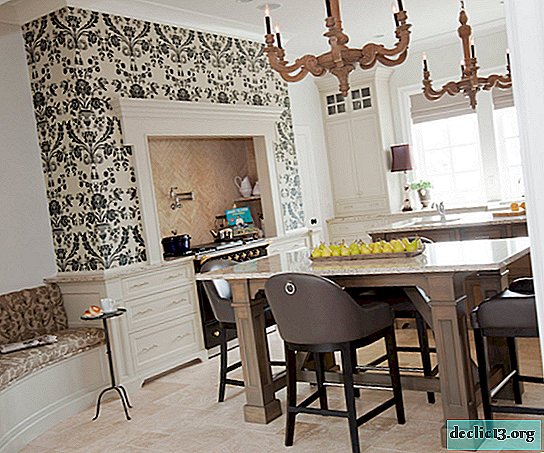
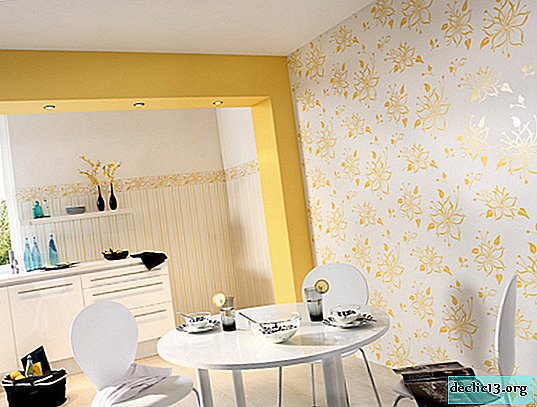
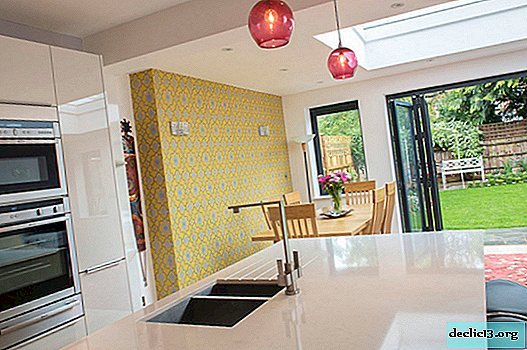
Wallpaper selection by technical specifications
The choice of wallpaper in modern decoration materials stores is incredibly wide. If you go to one of them without preliminary preparation, then in addition to being overwhelmed by the assortment, it is hardly possible to get anything else. Let's start by eliminating options that are not suitable for the kitchen in its technological properties. Paper wallpapers attract customers with their low cost and a wide range of colors, prints. But they are absolutely not suitable for rooms with high humidity, temperature extremes and a high level of risk of surface contamination. Even paper wallpaper with a special impregnation that prevents moisture, is suitable only for those owners who will not mind after 1.5-2 years again to paste the walls of the kitchen. Most likely, the picture will burn out in 2 years in those places where the paintings fall under direct sunlight and the difference in color will be noticeable.
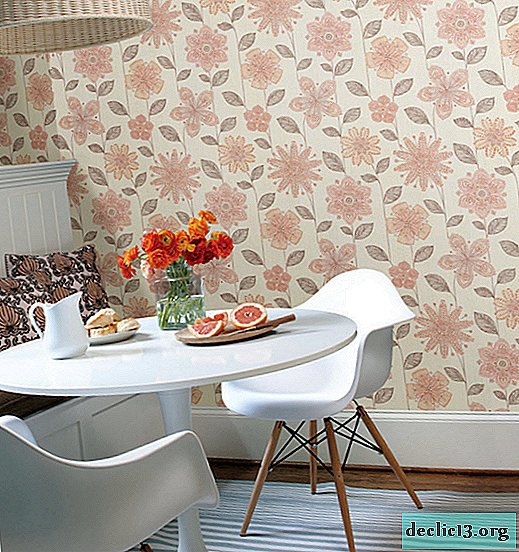
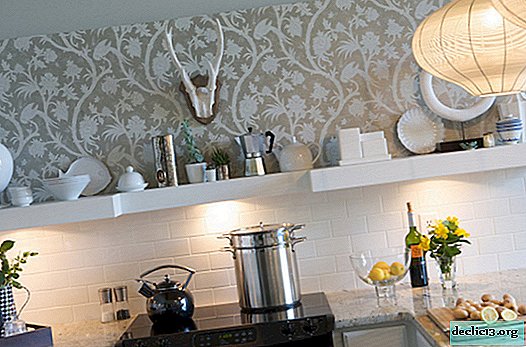
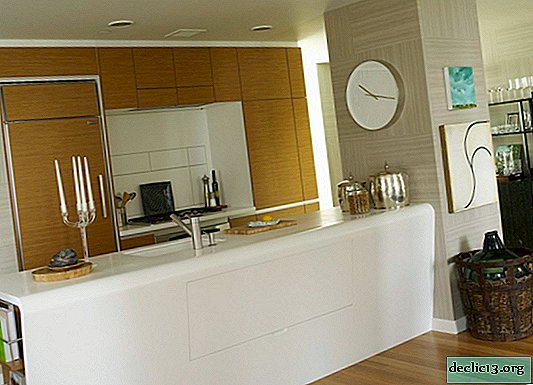
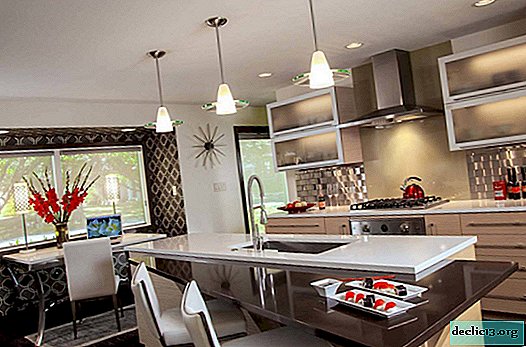
Paper wallpapers with a minimum layer of vinyl can only be used if the wall surfaces have a perfectly smooth and even surface. Such canvases are quite thin and give out any surface defect. This design also can not be called durable.
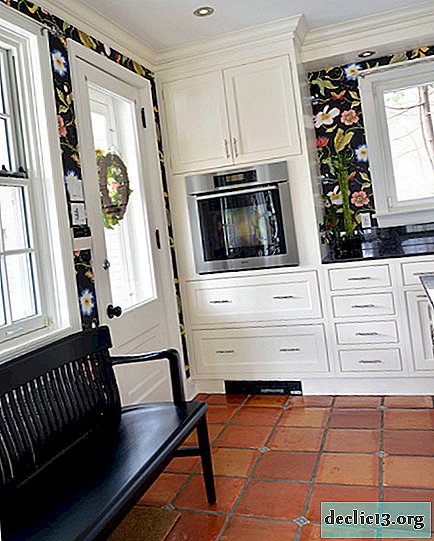
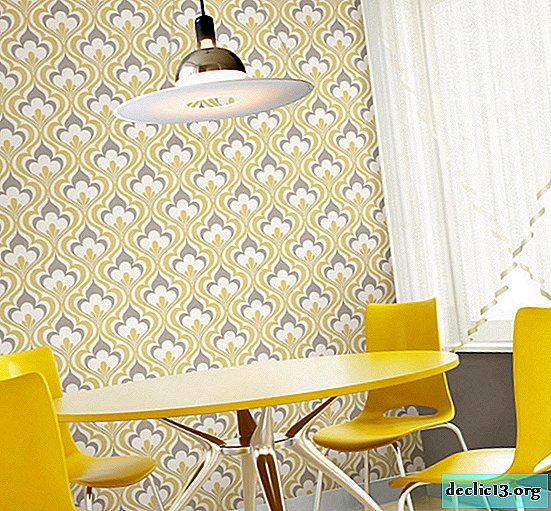
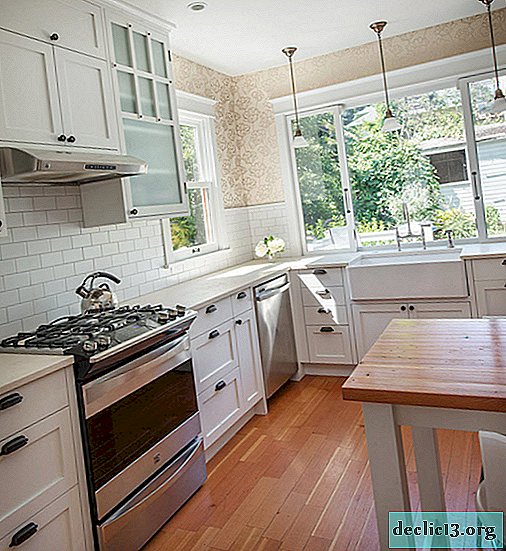
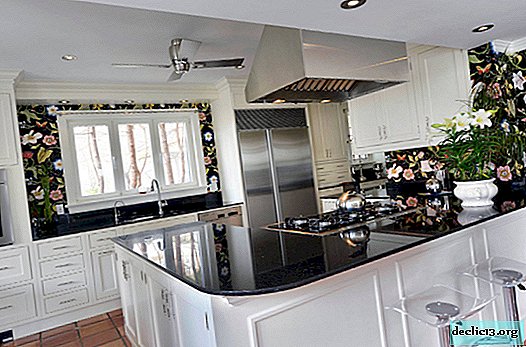
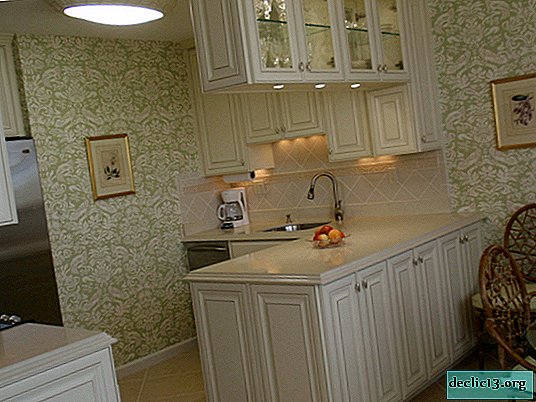
Do not use textile wallpaper in the kitchen space. They look luxurious, differ in high ecological properties, but it is the ability to "breathe" that becomes one of the reasons to refuse such a design - the canvases perfectly absorb all the smells. But the main reason is the inability to clean the textile fabric from contamination, the use of cleaning products.
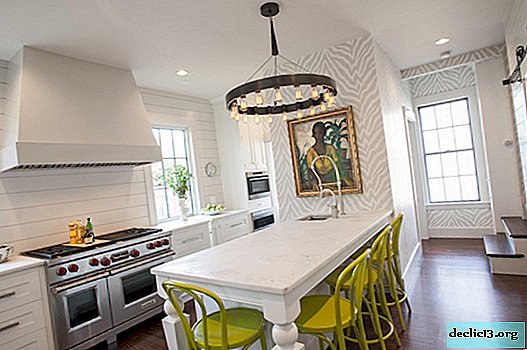
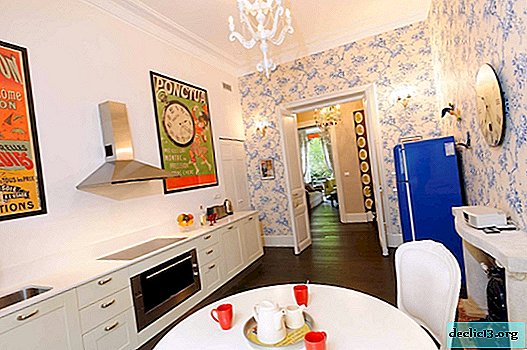
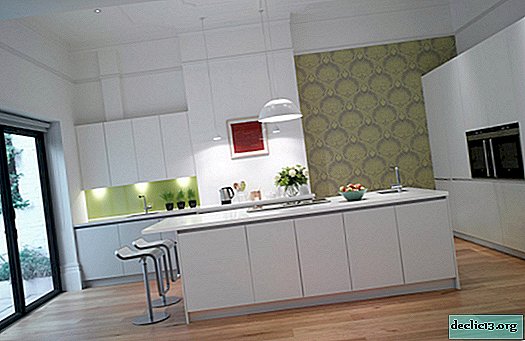
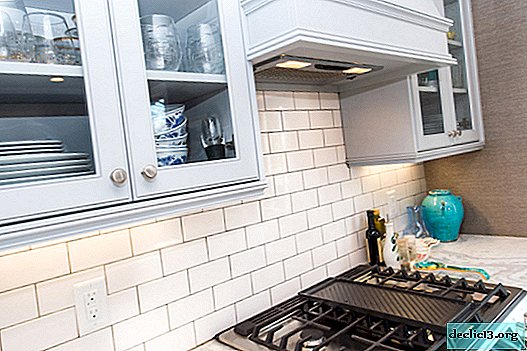
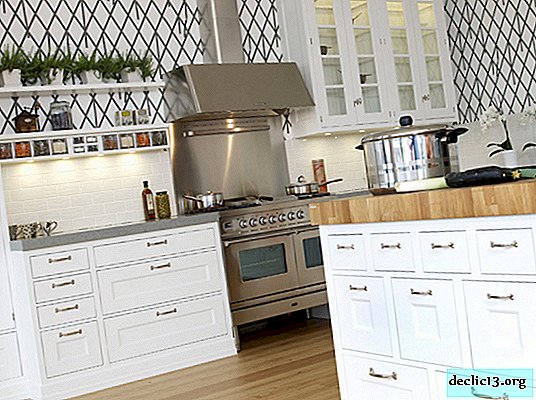
Vinyl wallpapers are great for the kitchen room. Strong and durable, resistant to moisture, sunlight, temperature extremes and mechanical stress (within reason). Vinyl wallpapers can be cleaned with the help of a damp sponge. But there are varieties among vinyl paintings - for the kitchen you need to choose the most dense products. It is not difficult to check the surface for density - if, when pressed with a finger, the material easily bends like a sponge, then the density is not high enough. The highest quality wallpapers are considered "compact vinyl".
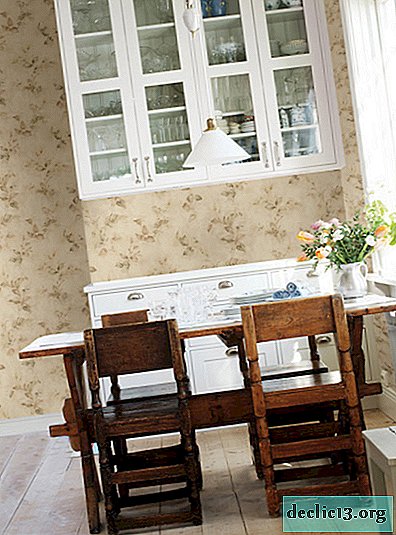
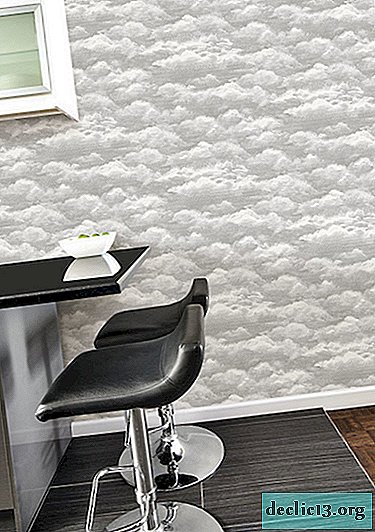
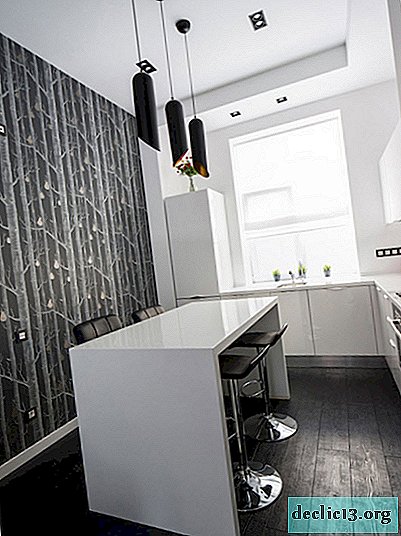

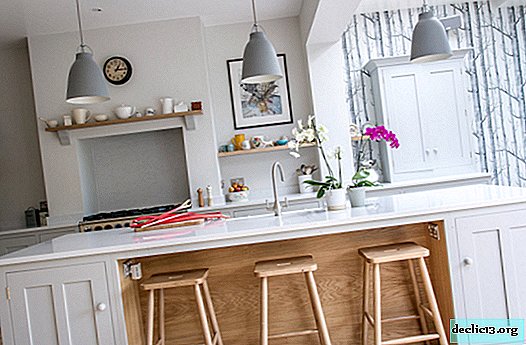
Vinyl wallpapers are on paper and non-woven (non-woven) basis. Paper-based cloths are cheaper, but less durable and strong (much depends on the vinyl layer on the product). Vinyl wallpapers are also divided into canvases with a pattern and products for painting. You can paint vinyl wallpapers up to 5-6 times (usually this information is indicated on the product labeling). For a kitchen room, the possibility of painting stains or damage to the canvas is an essential argument when choosing a finishing material for walls.
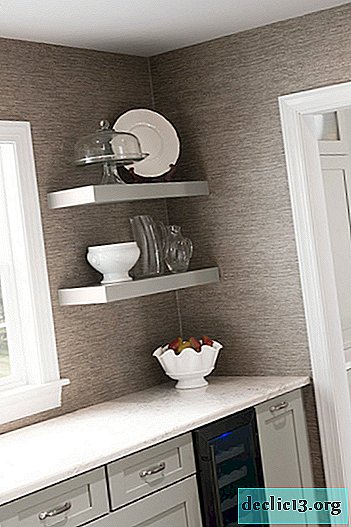
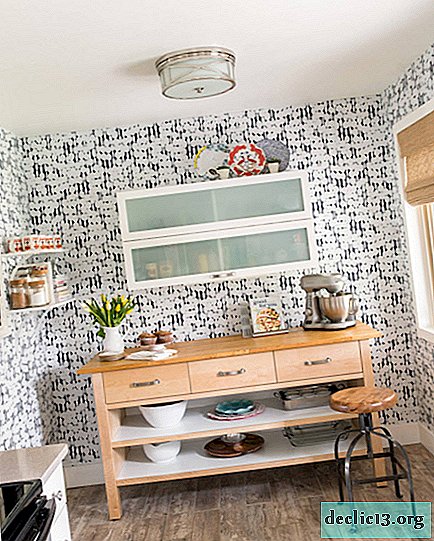
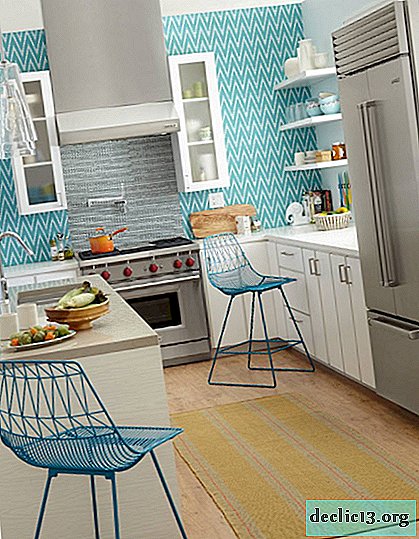
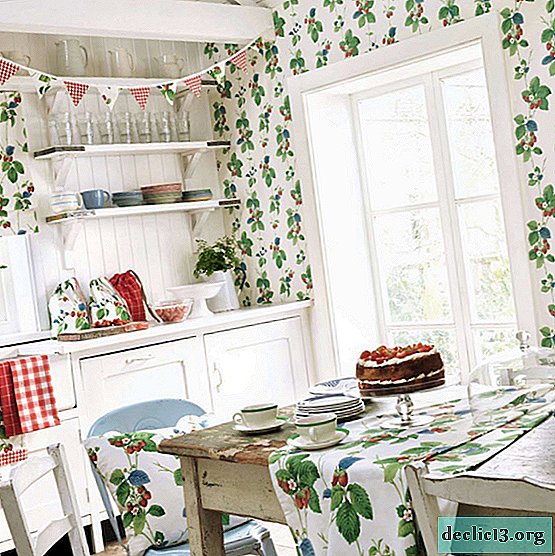
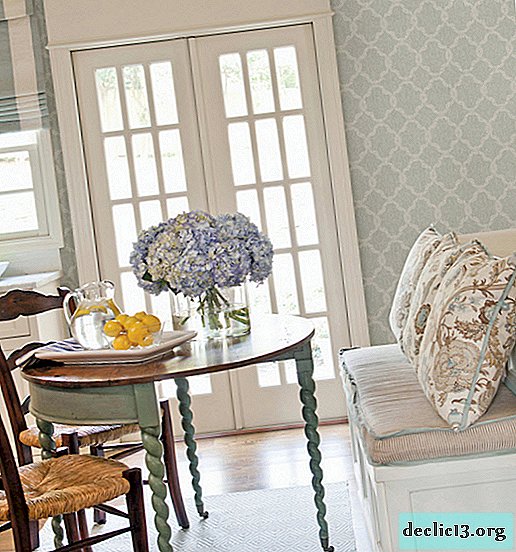
Color solutions for modern kitchen spaces
Of course, there is a certain fashion for color solutions for finishing materials. Manufacturers use original color combinations, complex shades in new collections, and designers offer more and more new options. But any owner of the kitchen space when choosing a color scheme for the design of his kitchen is based, first of all, on the following factors:
- the size and shape of the room:
- the level of natural light, which depends on the number and size of window openings;
- the location of the kitchen relative to the cardinal points;
- color schemes in adjacent rooms;
- the palette of kitchen facades and the desire to create a color accent or a neutral image of space.
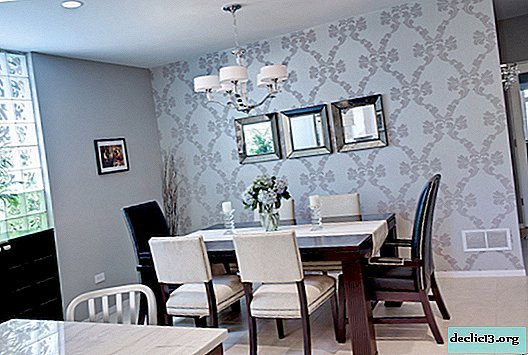
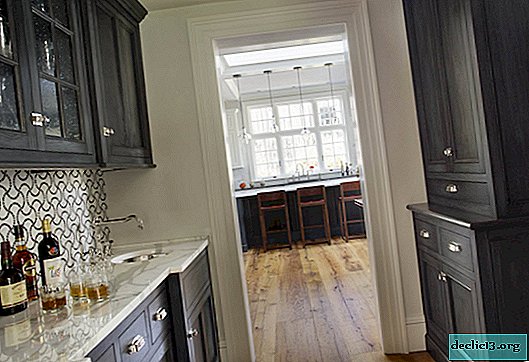
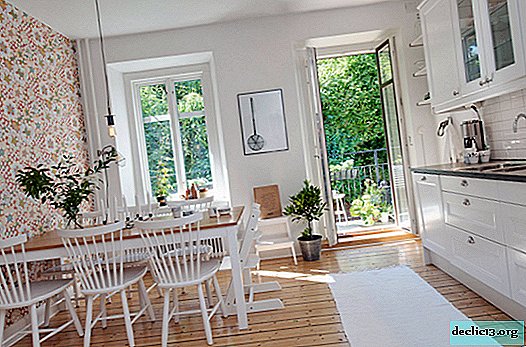
In kitchen spaces of small-sized dwellings, it is necessary to use a light palette for wall decoration in order to create a difficult and clean image of the room, but also visually increase its volume. If the room is very small, then it is desirable to execute the facades of the kitchen set in bright colors. Do not worry that wallpaper in a light tone will quickly fail. You can clean vinyl sheets on a non-woven basis more than once. In addition, fingerprints, dust and dried drops from water are much less noticeable on light surfaces.
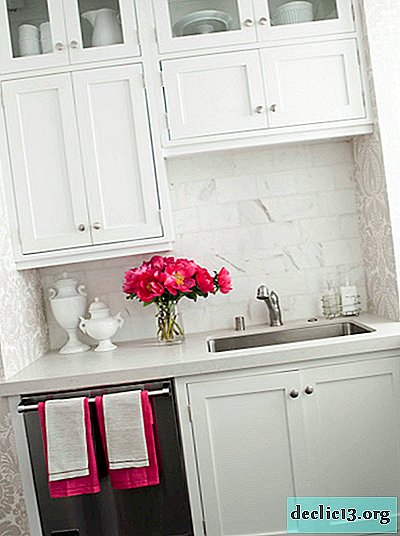
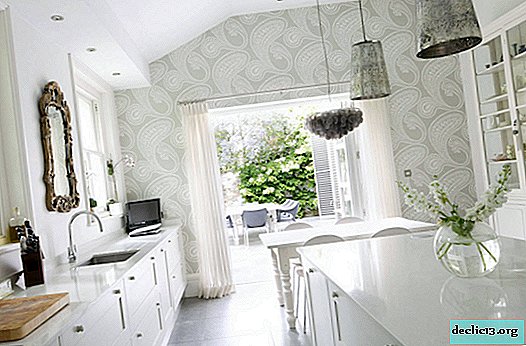
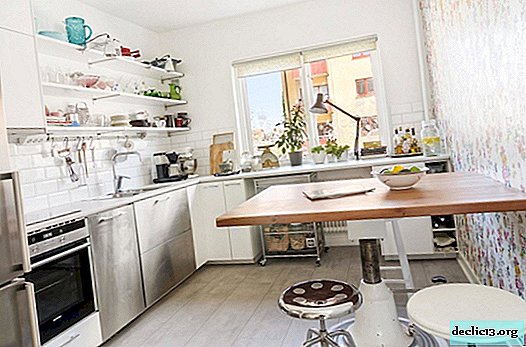
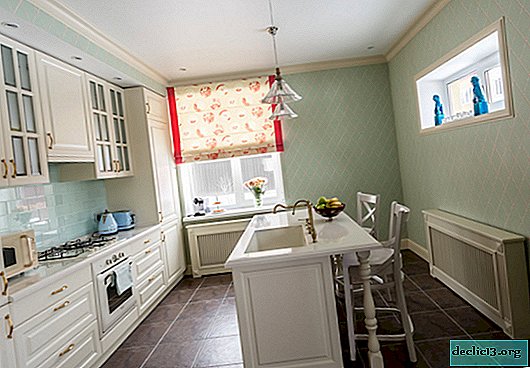
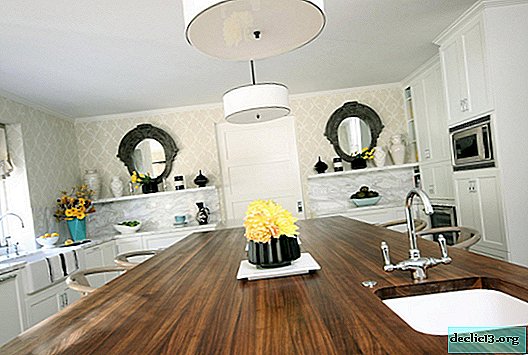
The beige palette is always in trend. First of all, due to the fact that it helps to create a warm, cozy atmosphere even in poorly lit rooms located on the north side of the building. The snow-white facades of the kitchen ensemble and the beige color of the finishes are an excellent alliance that always looks harmonious. No less spectacular interior design options can be achieved by combining light beige wall finishes (using wallpaper) and a contrasting dark color scheme for kitchen facades.
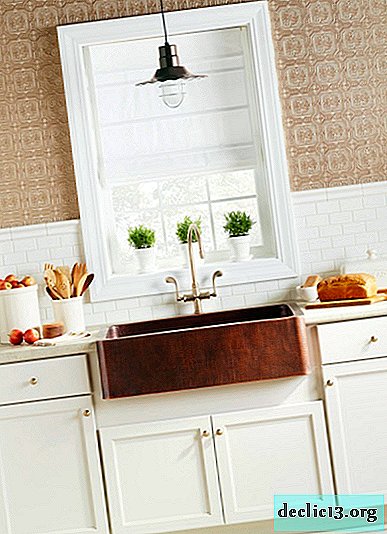
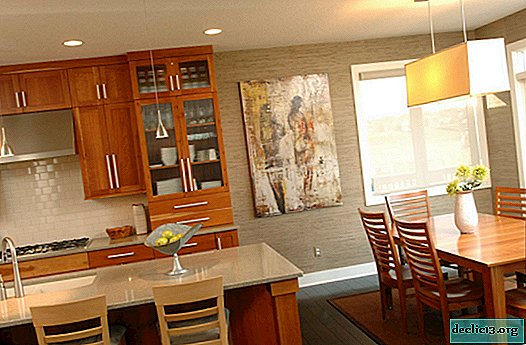
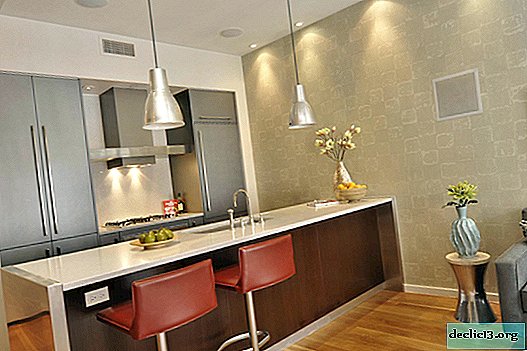
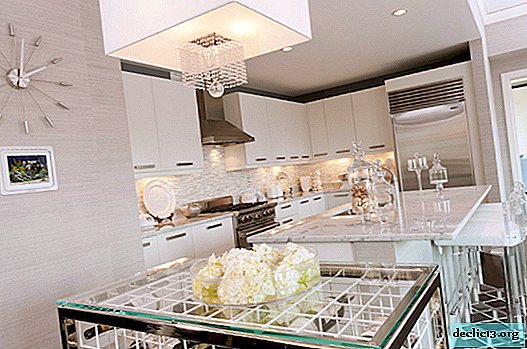
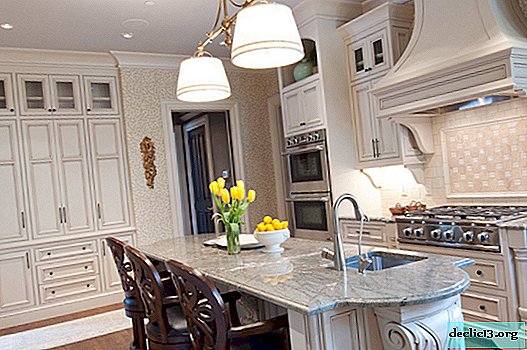
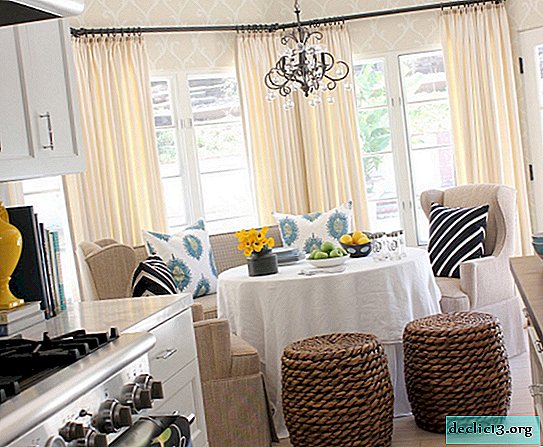
If we talk about popular print options for the execution of kitchen wallpapers, then two directions - geometric and floral patterns - never go out of fashion. The geometric print is more conducive to creating a rigorous, modern design of the kitchen space ...
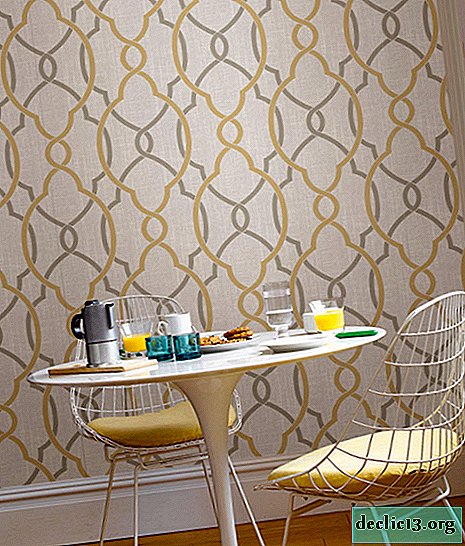
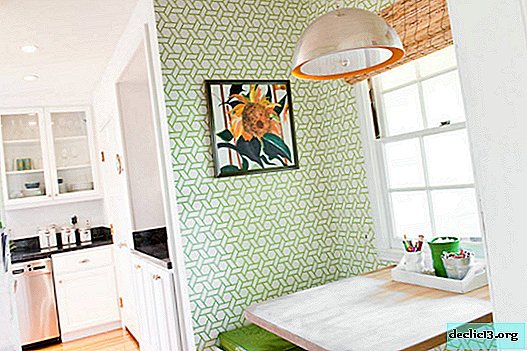
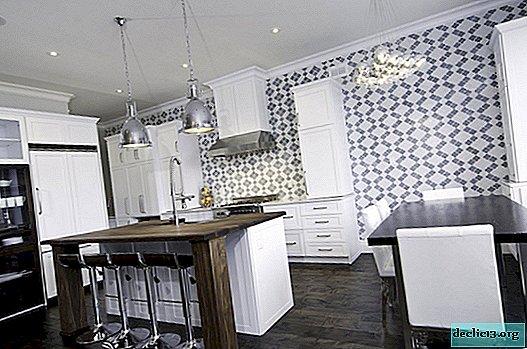
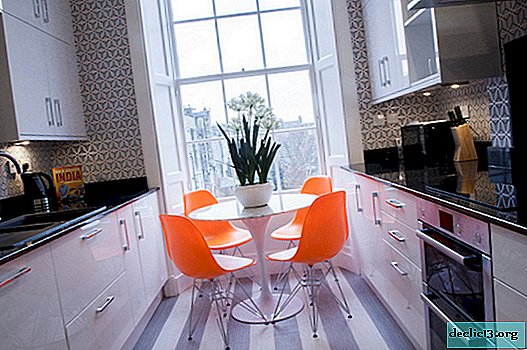
A floral print (floral motifs dominate) creates a light, cheerful and even festive atmosphere. Such an interior can not be called boring.
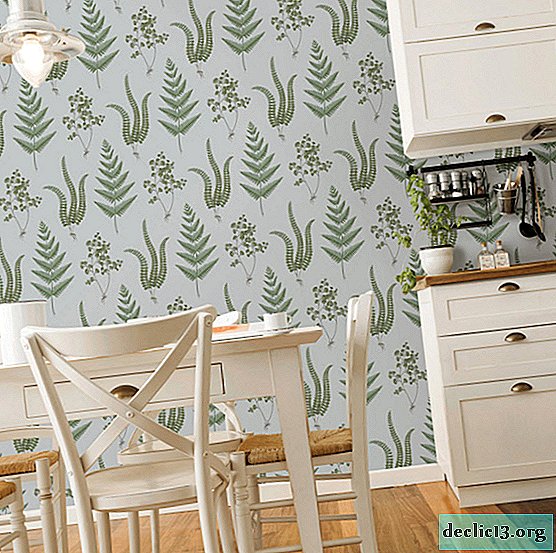
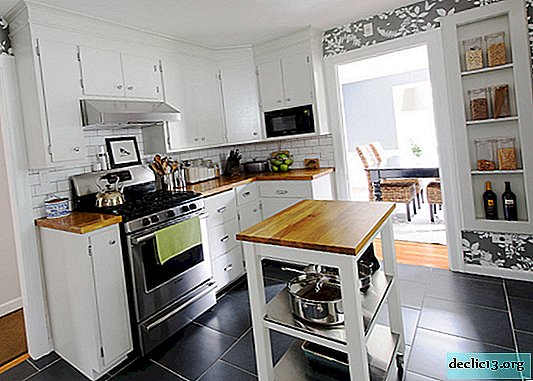
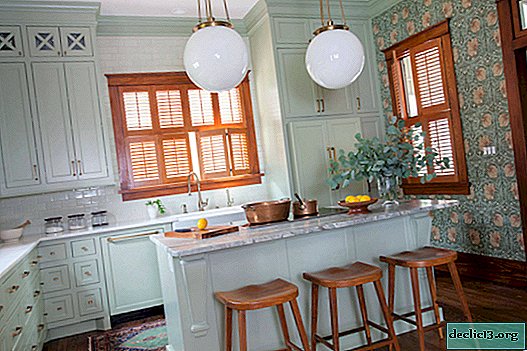
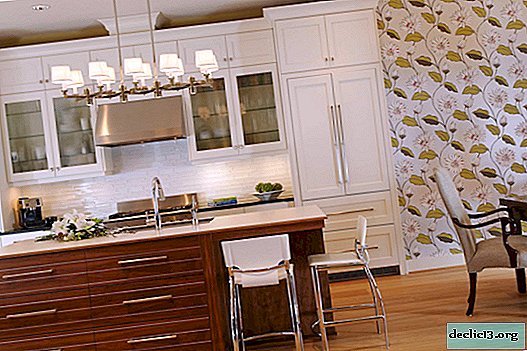
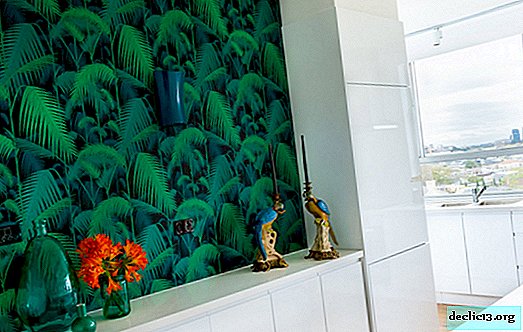
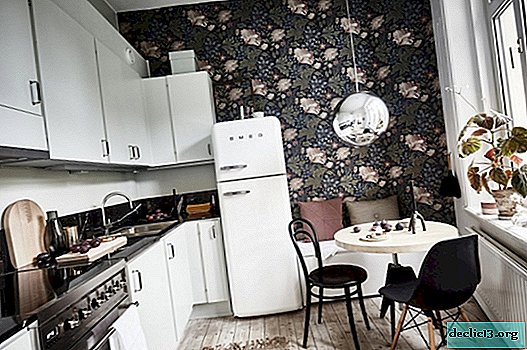
Almost every manufacturer of finishing materials has a collection of products that are called “kitchen wallpapers”. Demand for paintings depicting a thematic picture never falls. Dishes and interior items, products and kitchen accessories painted on the wallpaper, not only diversify the color palette of the interior, but also create a special, cozy atmosphere of the room, which can be safely called the most visited in any home.
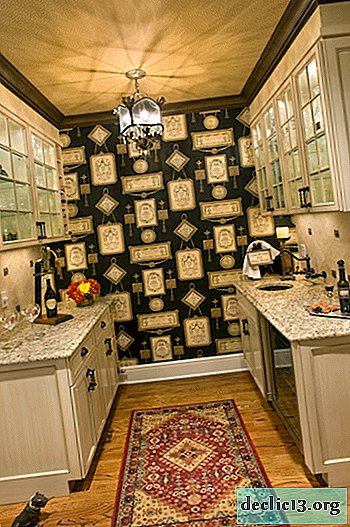
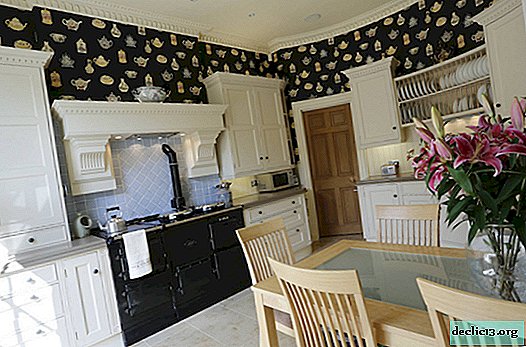
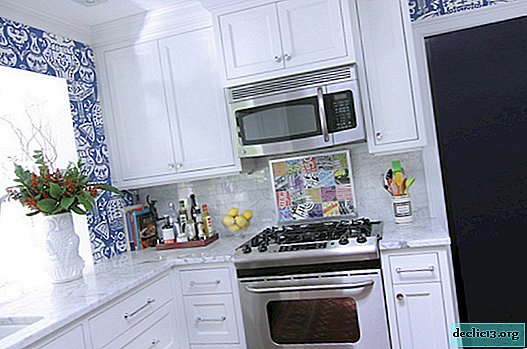
No less popular are dense wallpapers that mimic any surface. It can be brick or masonry, wooden planks or beams, “concrete wall” or a plane with the effect of peeling plaster, painting, intentionally aged surface.

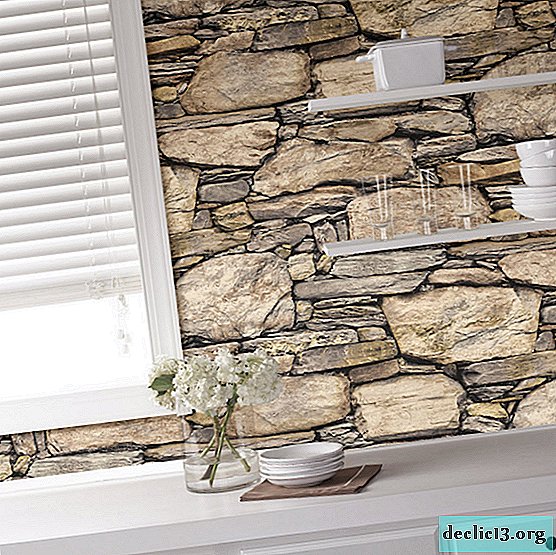
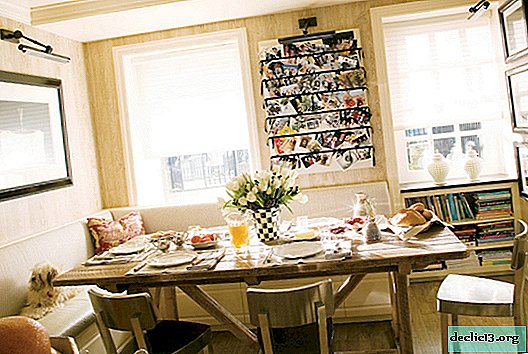
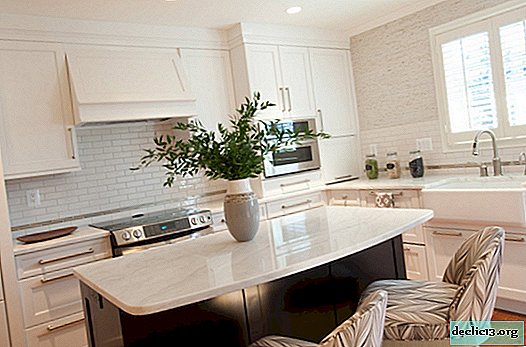
Among the popular prints for wallpaper, which are used in the decoration of the kitchen, it is possible to distinguish stripes and cages. It is difficult to imagine any other room in which such a picture would look appropriate, organic and practical.
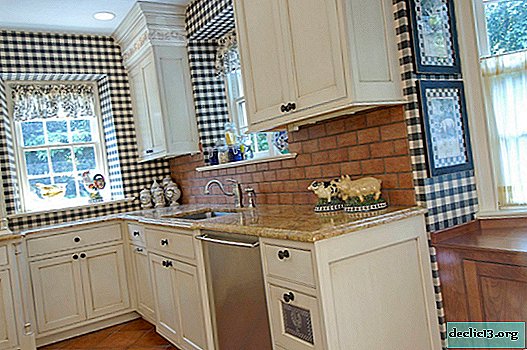
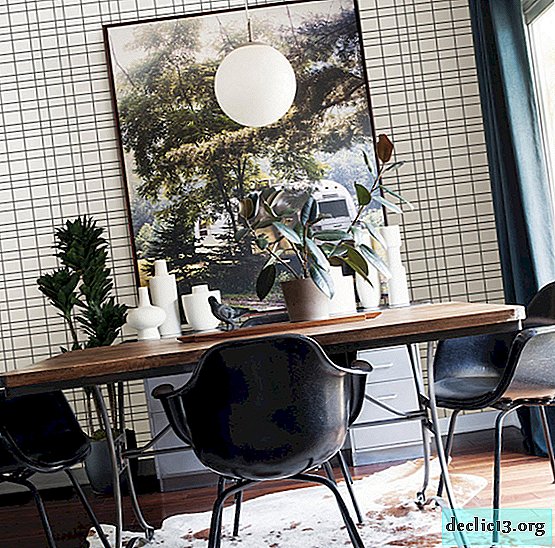
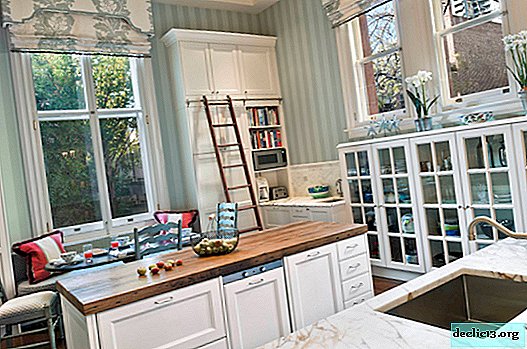
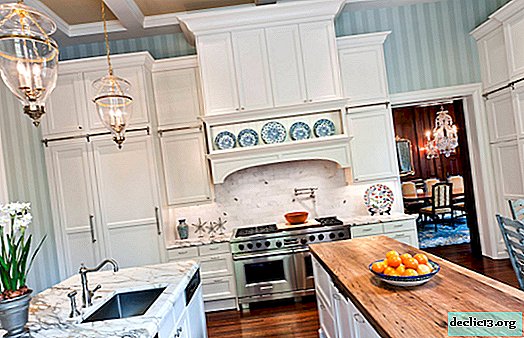
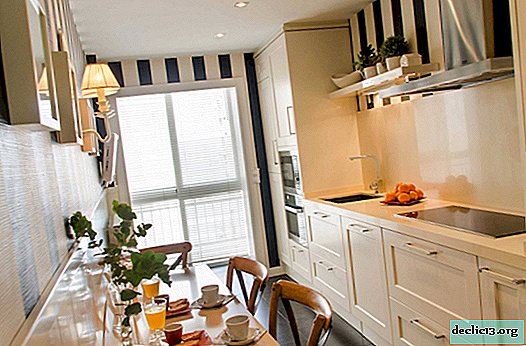
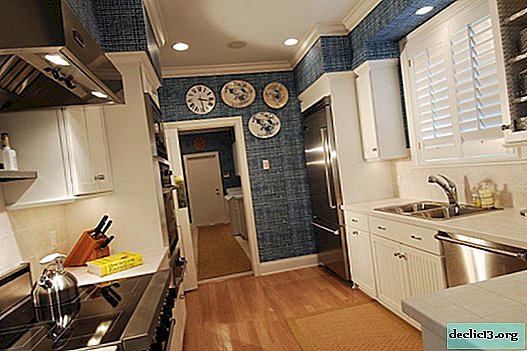
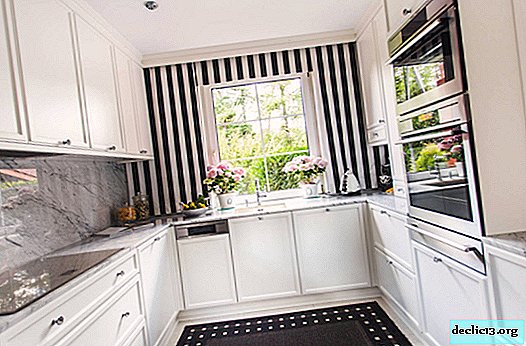
How to use wallpaper in kitchens of different modifications
The most obvious answer to this question is to cover the walls in those places. Where there is no kitchen apron. But not everything is so simple and there are options. By far, the most popular variation on the use of wallpaper in the kitchen space is the design of the dining area. Around the dining table, the surfaces are not exposed to humidity and extreme temperature changes, and are less prone to pollution. In a word, there is little threat to the wallpaper near the dining group. The decoration in the dining area can be used as an accent and highlight this functional segment, for this it is not necessary to choose very bright wallpapers or canvases with a large, colorful pattern, there are enough differences in color from the main finish and the color scheme of the kitchen facades.
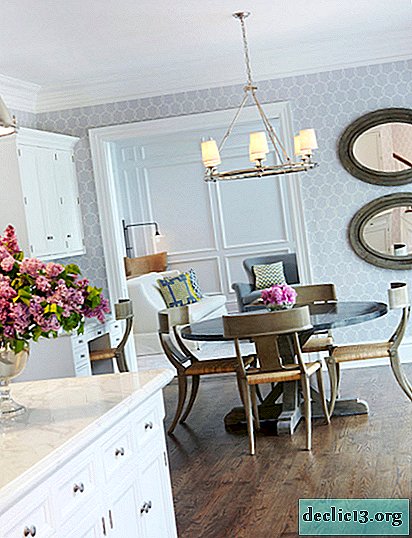
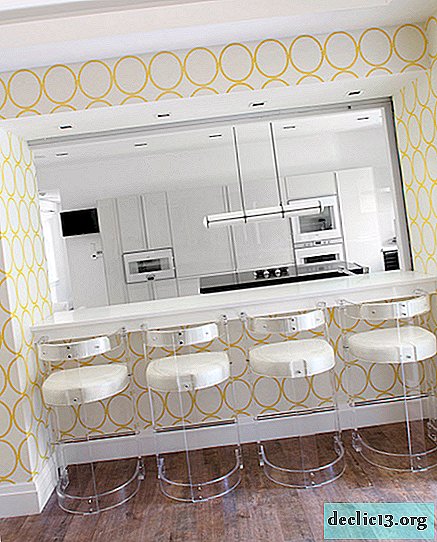
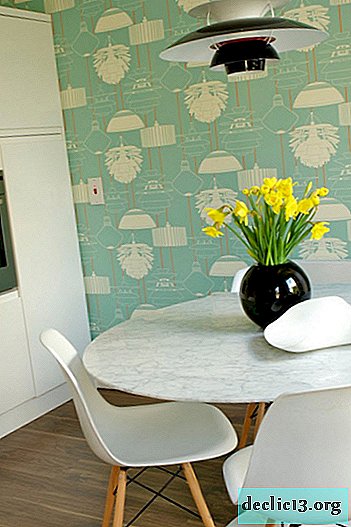
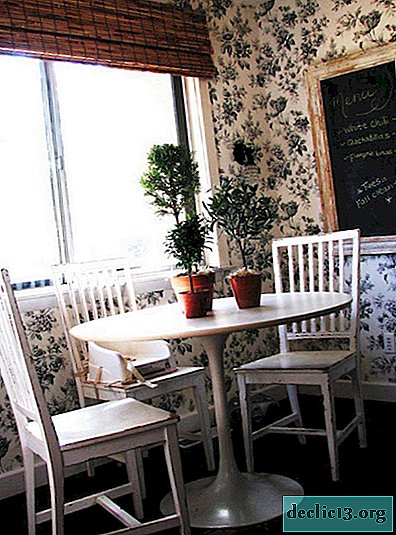
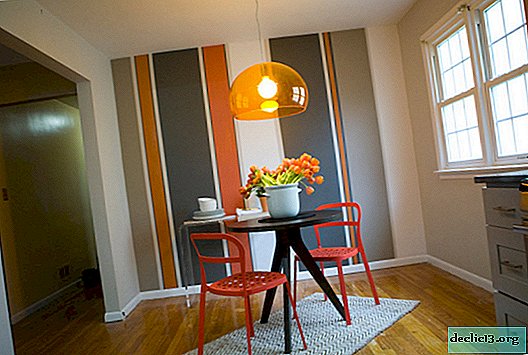
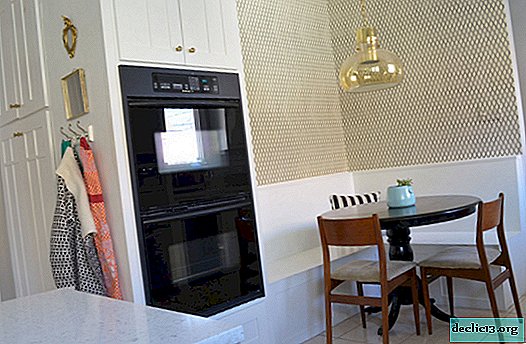
Recently, murals have been popular for decorating the dining area. Most often you can see the image of landscapes on such canvases. What could be better than a meal in nature? Even if this nature is imitated by photo printing on wallpaper - the image is incredibly realistic. The result is not only a peaceful atmosphere for meals, but also the original design of the entire kitchen.
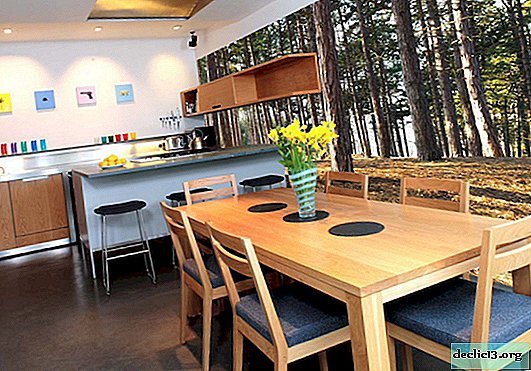
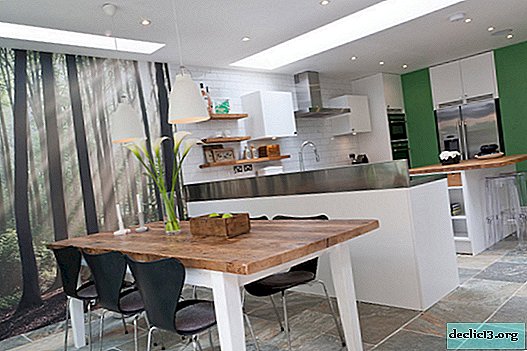
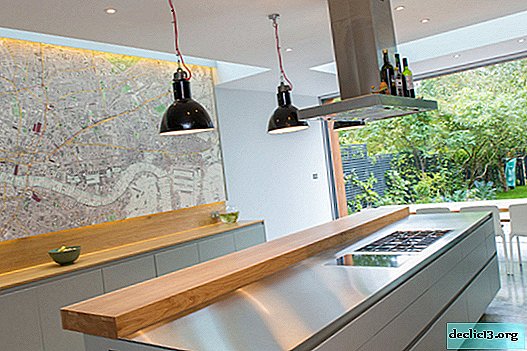
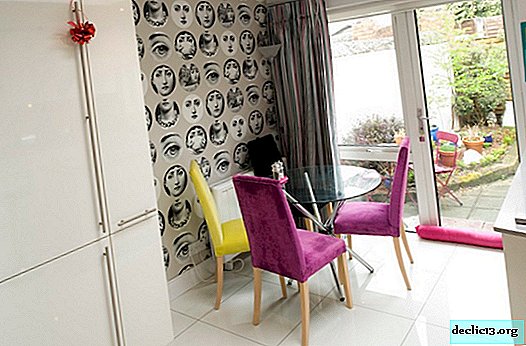
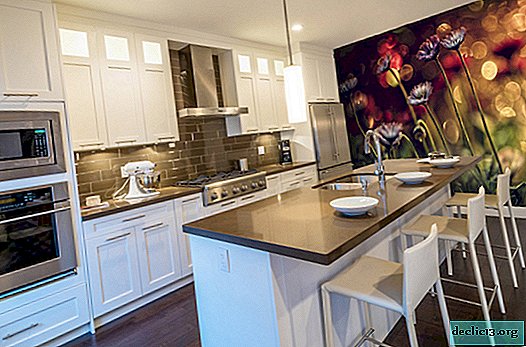
Another equally common way of combining decoration is to wallpaper the entire remaining space to the ceiling above the kitchen apron, no matter how wide it is. Moreover, such a combination is also convenient in the case when the upper tier is represented by a cabinet and if open shelves act as an alternative. In color, the design of the apron and the upper part of the walls can match or contrast, creating a certain emphasis - it all depends on the general concept of the design of the kitchen, the color scheme of the facades and the style of interior design.

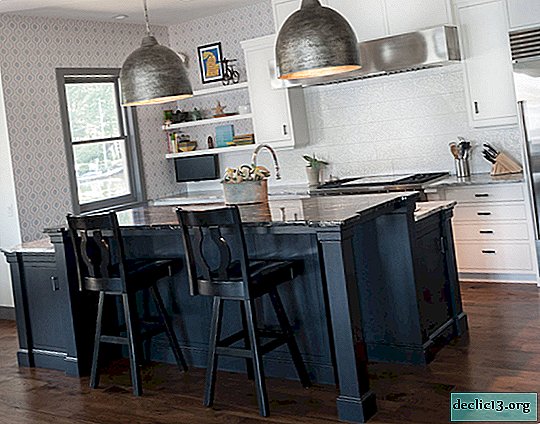
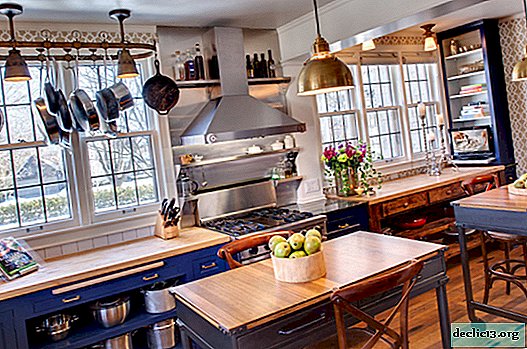
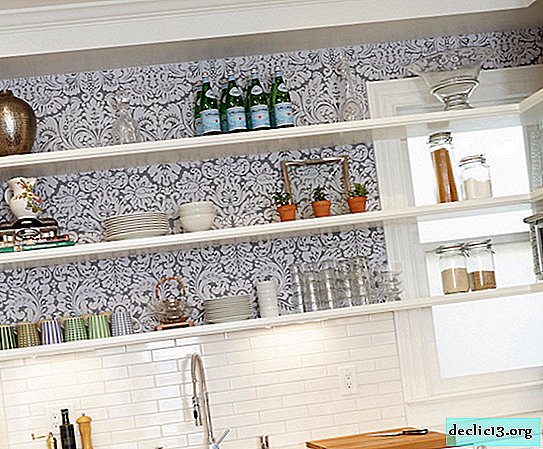
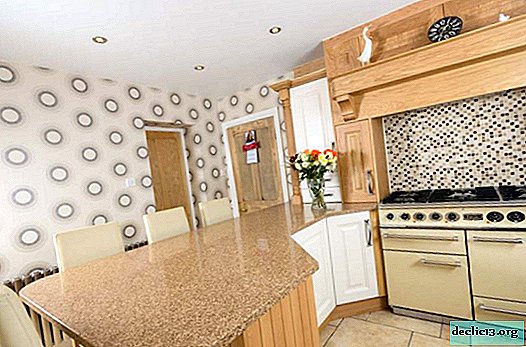
One of the options for this design - the use of wallpaper for pasting the space of walls from the upper tier of cabinets to the ceiling. Typically, this narrow band acts as an accent surface.
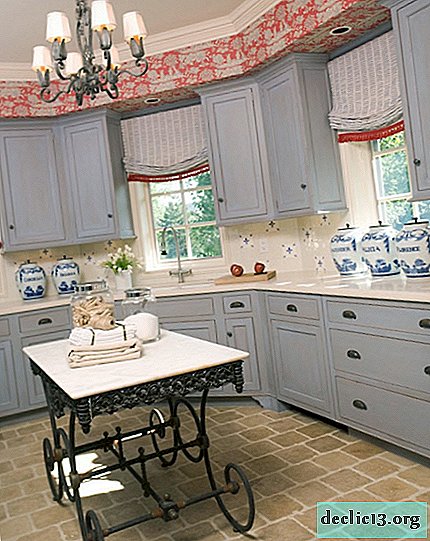
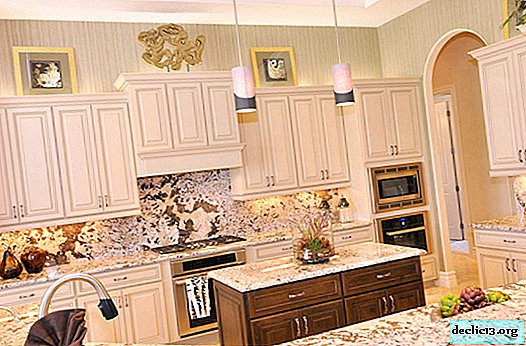
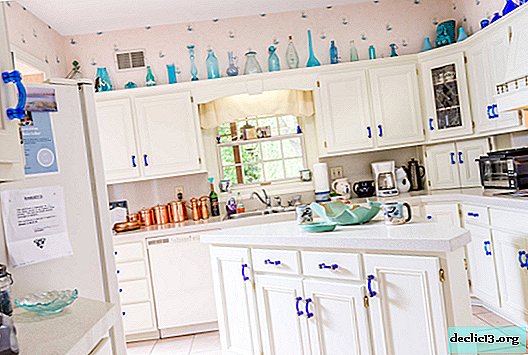
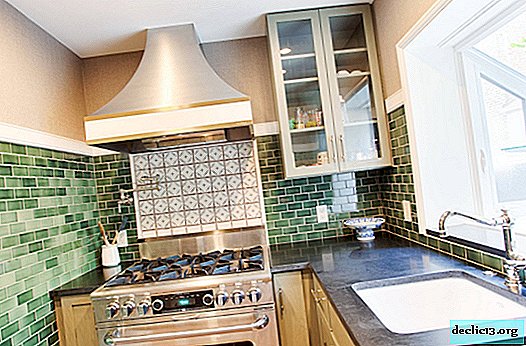
Another way to integrate wallpaper as a finishing material is to design the upper part of the walls above the panels decorated with wall panels, tiles, natural or artificial stone, brickwork or painted lining.
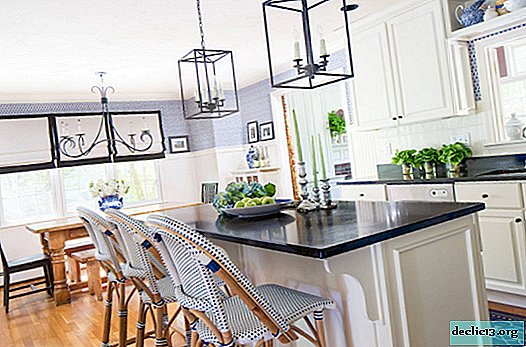
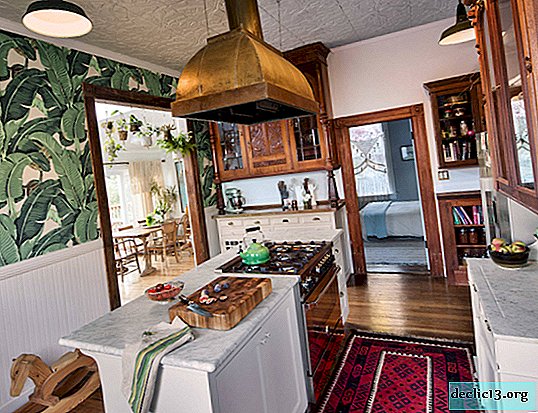
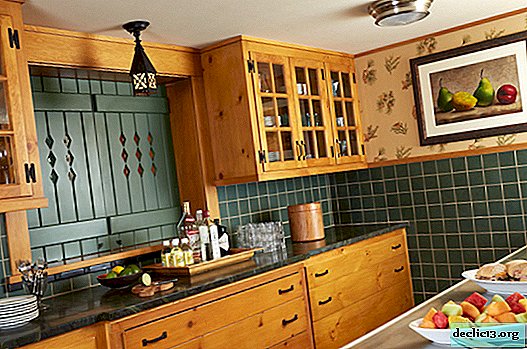
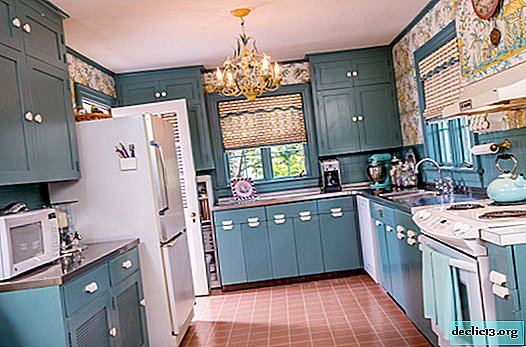
There are many kitchen spaces (usually a small area) in which the dining area simply does not fit or is not needed, because there is a separate room for this or there is enough space in the living room to set up a dining group. In this case, using wallpaper (most often in accent color or with a pattern), you can design a wall that is not occupied by a kitchen set. Depending on the layout of the furniture ensemble, this can be either one surface or two walls (for example, around a window opening and a door to a room).
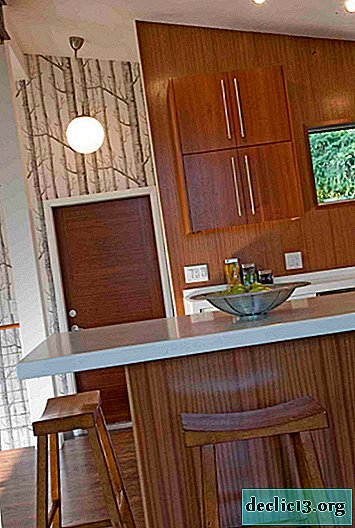

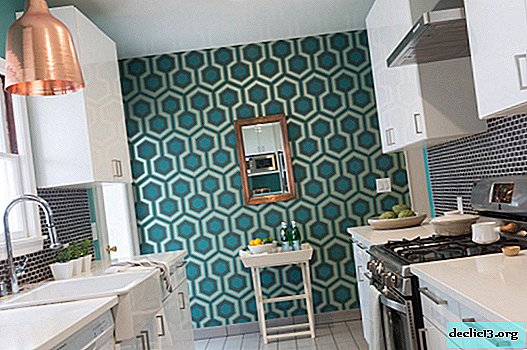
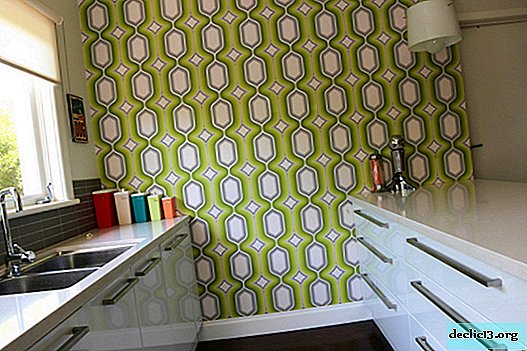
And the last way to use wallpaper in the kitchen is pasting cabinets and niches with open shelves. Of course, this method of decorating storage systems is advisable if the cabinet doors have glass inserts and the color or wallpaper print is visible even with the facades closed. Most often in this case, an accent canvas is used for decoration. If the facades and wall decoration are neutral, light, then the picture in the bowels of the storage systems will not only diversify the color palette of the room, but also increase the degree of uniqueness of the interior.
